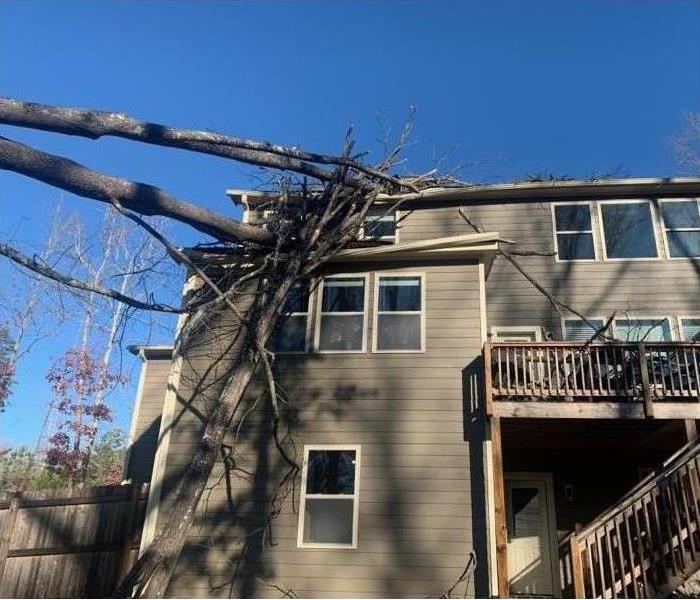Autumn Warnings for Storm or Flood
9/12/2022 (Permalink)
With the changing seasons comes changing temperatures and weather patterns. Storms can become more frequent and with it, floods and flash floods. Floods can be dangerous for homes, businesses, and traffic of all kinds. It's best to know what to do in case of a flood or major storm.
- Always have a plan ready in case a storm or flood happens. Not only for your home, but in case you are caught out in a vehicle or as a pedestrian. Know what to do to keep your loved ones and pets safe.
- Know the risks for floods and storms in your area. Web sites such as FEMA.gov, NOAA.gov, and weather sites are good sources to know when to expect the possibility of storms and floods and potential water damage.
- Make sure you have adequate insurance coverage for your home and vehicle that covers flood and water damages.
- Keep important documents in a waterproof container so they aren't damaged.
- Keep your home in good repair to avoid leaks and storm damage as much as possible.
In the event of a flood, storm (particularly a hurricane and you are on the coast), or other such emergency, always:
- Follow the instructions of emergency personnel. If you are ordered to evacuate - then evacuate! Have a plan ready and materials to board up your home if needed. Don't wait until the last minute as you may get caught in traffic. Although here in the Columbia area we aren't as affected as the coast in a hurricane, we can still get nasty storms that can bring floods and excess water.
- Know what to do if you are caught in a storm or flood while in a vehicle. Never try to drive through moving water, or even still water. It is not easy to tell how deep the water is and a vehicle can easily be swept away and pose a drowning hazard.
- Never try to walk or swim through moving water. Not only can it be stronger than your ability to move through it, you may not know what hazards are in that water. There could be moving debris as well as microorganisms that could pose a health hazard.
- Be aware of other hazards in water such as snakes, animals, or electrocution due to exposed wires or downed power lines.
- If you are trapped, try to get to high ground (roof, top of vehicle, etc.) and wave a bright, colorful cloth or flashlight to attract the attention of emergency services.
If your home is damaged by a flood or storm, be sure to call us here at SERVPRO for professional assistance in assessing and mitigating the damage and getting you back into your home as soon as possible.

 24/7 Emergency Service
24/7 Emergency Service
